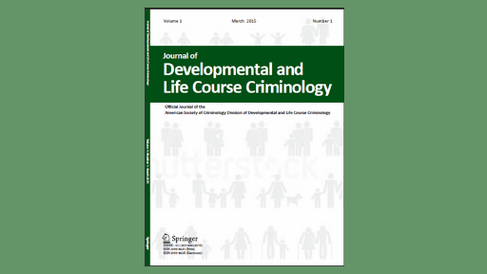
Journal of Developmental and Life-Course Criminology
Special Issue: Longitudinal and Developmental Investigations of Criminal Justice Interventions and Reintegration
In life-course criminology, great effort has been devoted to understanding within-individual developments in criminal behavior over time, explaining why this development takes place, and measuring the impact of criminal justice interventions on development. The availability of advanced methodological techniques and large administrative datasets provide a unique opportunity to build a foundation for a new generation of life-course studies of interventions and reintegration. Life-course criminology would also benefit from expanding its borders beyond a small number of industrialized Western countries in a way that takes seriously the relevance of context. In addition, while criminology is an interdisciplinary field of study, we may still suffer from “tunnel vision” when it comes to making use of advances in data collection and innovations in methodology, for instance from other academic fields that share a common interest in life-course processes.
We are seeking expressions of interest for papers examining criminal justice interventions and reintegration of justice-involved individuals, broadly defined (i.e., desistance, economic, social, cultural). We are interested in contributions with respect to theory, data, and/or methodology. This may include literature reviews, theoretical work, and/or empirical research. Examples of issues in understanding criminal justice interventions and reintegration derived from life-course principles include, but are not limited to, the following:
- Interdependency of life domains. Most research focuses on the interplay of crime and one life domain at a time (e.g., employment, parenthood). In reality, justice-involved individuals face difficulties in multiple life domains, with especially vulnerable groups more heavily overrepresented in criminal justice settings. While criminological studies focus on effects of criminal justice interventions, little attention is paid to interventions that many of these individuals undergo in the social domain. Examples of new directions: incorporating multiple life domains in effect studies, complementing domains with knowledge from different disciplines, studying interdependency within and across generations, expanding on traditional life-course domains (e.g., religiosity, sexuality, gender identity, health).
- Life span development. Many empirical insights are based on the relatively short period after a criminal justice intervention. But life-course theory emphasizes that events should not be isolated from each other, and have to be understood in their continuity (pre- and post-intervention). Examples of new directions: widening the focus to alternative (non-custodial) sanctions, understanding selection processes in interventions, studying the effects of combinations of criminal justice interventions, evaluating the interaction of criminal justice and social policy interventions, examining lifelong effects and effects on the aging process itself.
- Time and place. The most prominent life-course theories and research evidence are based on longitudinal data from highly developed countries. Comparative studies, especially from the Global South, might provide new directions for research as well as theory development. Life-course theories have also not kept pace with societal changes in, for instance, the nature of employment, romantic relationships and fertility, and interconnectedness afforded by social media. Examples of new directions: studies of cross-boundary crime and sanctioning, trend research on the changing role of social bonds, comparative analysis of criminal justice interventions and reintegration, critique of traditional conceptions of life-course criminology.
Researchers interested in contributing to this special issue should submit a 250-word abstract to the journal office by 22 March 2024 to jdlcc@rhul.ac.uk. Successful submissions will then be invited to submit a full paper, which will undergo a comprehensive peer review process. Please note that an invitation for submission of the full paper does not guarantee publication in the special issue.
Any queries about this process or the journal can be directed to the guest editors for this special issue: jdlcc@rhul.ac.uk
Hilde Wermink, Anke Ramakers, Mikko Aaltonen, & Robert Apel
Darrick Jolliffe & Manuel Eisner
Co-Editors-in-Chief
Journal of Developmental and Life-Course Criminology
